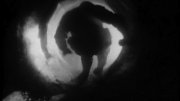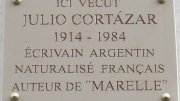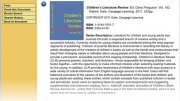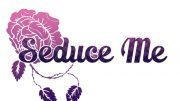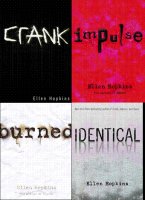 The Verse Novel (AKA: a novel in poems) is a new form of storytelling that’s hit the YA market in the last five to ten years. Intrigued by this new form, I spent some time during my studies at the Vermont College of Fine Art this past term exploring the nuts and bolts of this form. Due to it’s intense emotional scenes, use of white space, and often edgy content, verse novels have become very popular with teens. Many see this controversial new form as a great way to engage teens in poetry, where others find it to be lazy and examples of poor poetry and storytelling. You may love the form, hate it, or not be familiar with it at all. Either way, I thought I’d share some observations about the format that I’ve discovered in my personal exploration.
The Verse Novel (AKA: a novel in poems) is a new form of storytelling that’s hit the YA market in the last five to ten years. Intrigued by this new form, I spent some time during my studies at the Vermont College of Fine Art this past term exploring the nuts and bolts of this form. Due to it’s intense emotional scenes, use of white space, and often edgy content, verse novels have become very popular with teens. Many see this controversial new form as a great way to engage teens in poetry, where others find it to be lazy and examples of poor poetry and storytelling. You may love the form, hate it, or not be familiar with it at all. Either way, I thought I’d share some observations about the format that I’ve discovered in my personal exploration.
What is a Verse Novel?
- The verse novel is a new term that describes a narrative book of poetry.
- This is a highly controversial new book form. Many seem to have trouble classifying the form altogether as it’s not quite a long form poem (like the Iliad) nor is it a collection of poems, nor is it a normal novel. Personally, I’d consider it a new format in storytelling (rather than a genre) similar to how a graphic novel is a new format but can tell any type of story it wants.
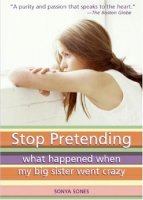 Some Examples of Verse Novels Include:
Some Examples of Verse Novels Include:
- Books by author Ellen Hopkins: Crank, Tricks, Impulse, Fallout.
- Out of the Dust by Karen Hesse
- Make Lemonade by Virginia Ewer Wolff
- Novels by Sonya Sones: Stop Pretending, What My Mother Doesn’t Know
- Psyche in a Dress by Francesca Lia Block
Use of Poetic Form:
- The verse novel uses the poetic form in some manner. Most YA and MG verse novels use free or open verse.
 But some use more stringent poetic forms such as ballads.
But some use more stringent poetic forms such as ballads. - Verse novels have a strong use of white space.
- Some of the controversy comes from the fact that verse novels have creative use of line breaks (which some argue doesn’t make it poetry, but prose with weird line breaks).
- There is often creative punctuation (no caps, no periods, etc.)
A Strong Focus on Emotion:
- Poems create impressions of emotions, and some term this as a focus on “emotionalism.”
- The emotion is the most important part in verse novels!
- Some refer to this focus on emotion as creating impressions (like an impressionistic painting).
- There’s often a focus on brief interactions and moments rather than whole scenes.
Plot and the Verse Novel:
- Some verse novels have a cause and event plot, but others don’t. With a focus on emotion, often the causality found in most goal-oriented plots is lacking in a verse novel. But that is not always true.
- The strong focus on emotional moments allows the reader can piece together the events and story like a collage. This creates reader interaction and involvement.
- A verse novel can be organized around a series of scenes or moments that center around a common theme or idea.
- The poems can work like a game of connect the dots. The reader is offered many small moments/impressions that the reader then pieces together to see the whole.
- A lack of plot can sometimes leave the reader wanting more.
Source: ingridsundberg.com
You might also like:



Related posts:
